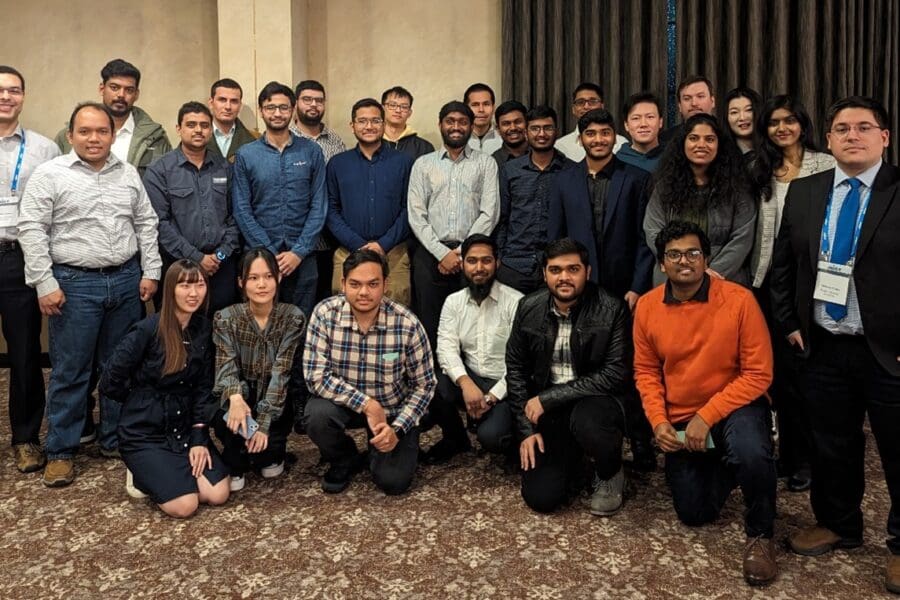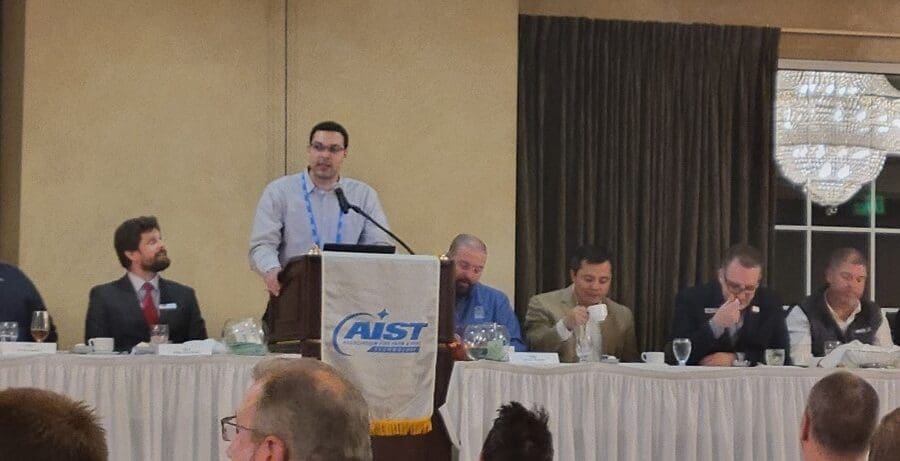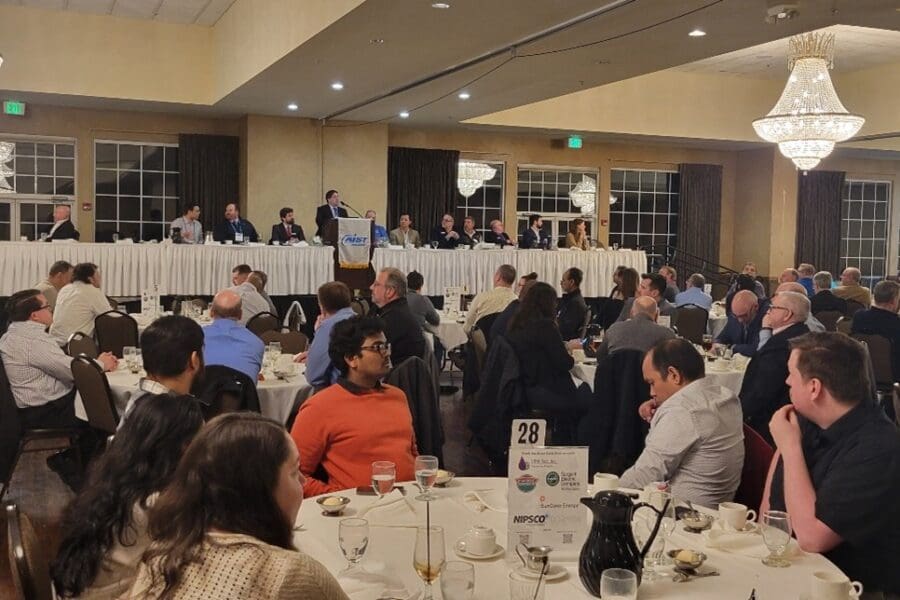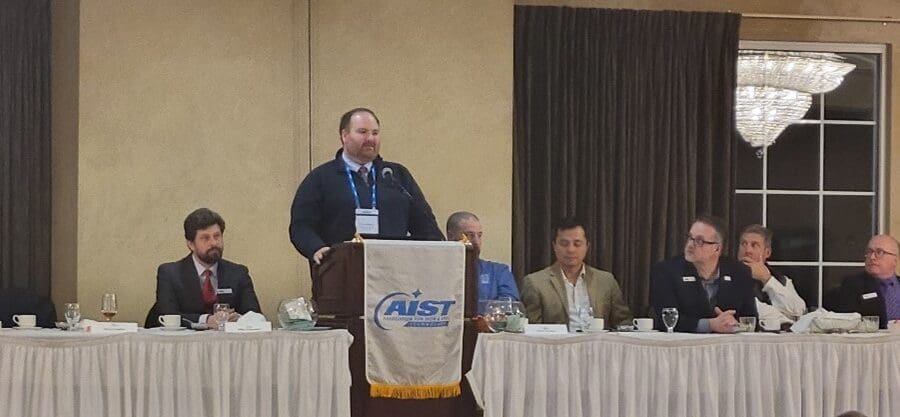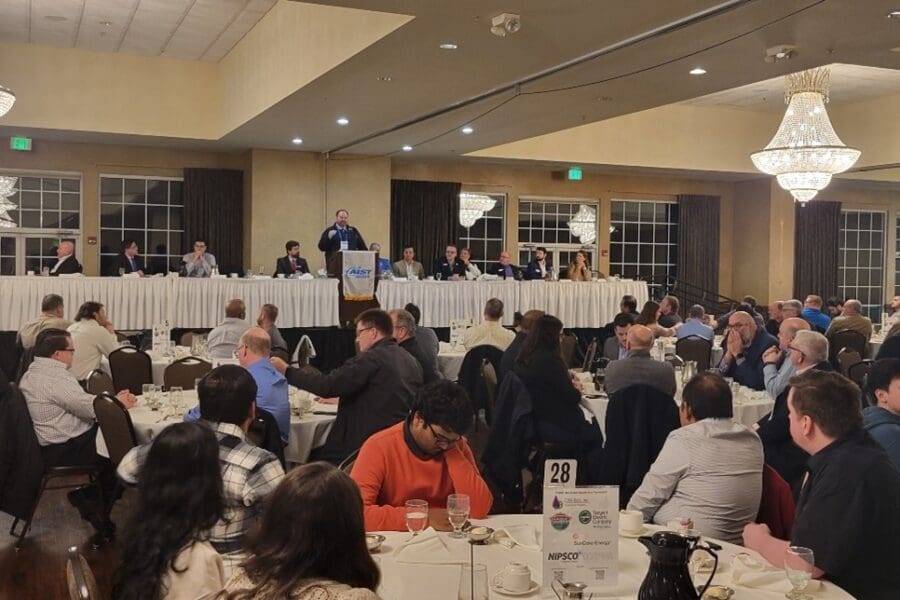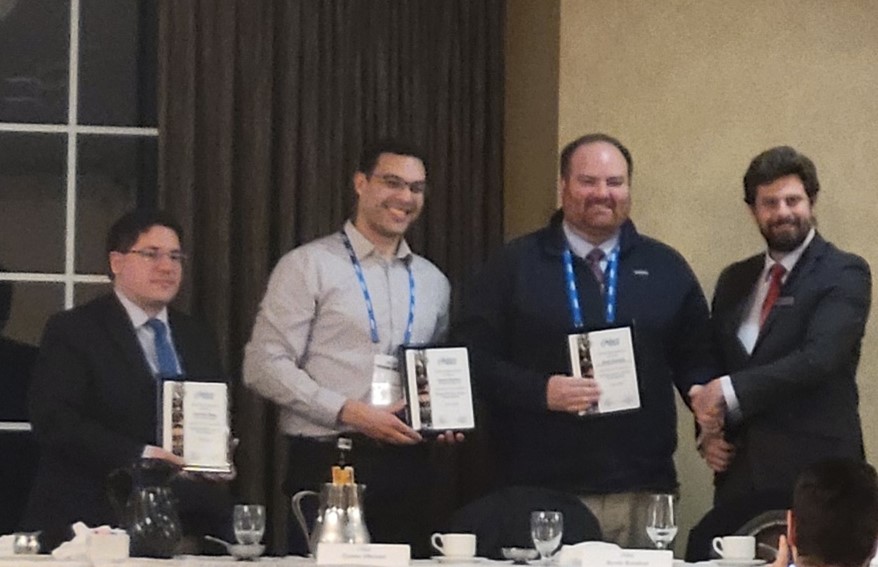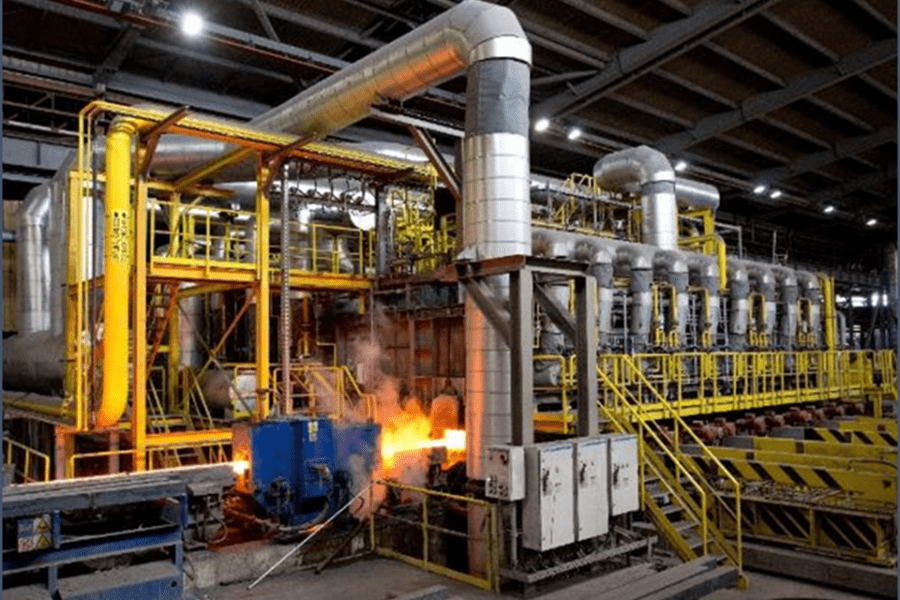DOE Funded Projects Presented by CIVS at AIST Midwest Chapter Dinner
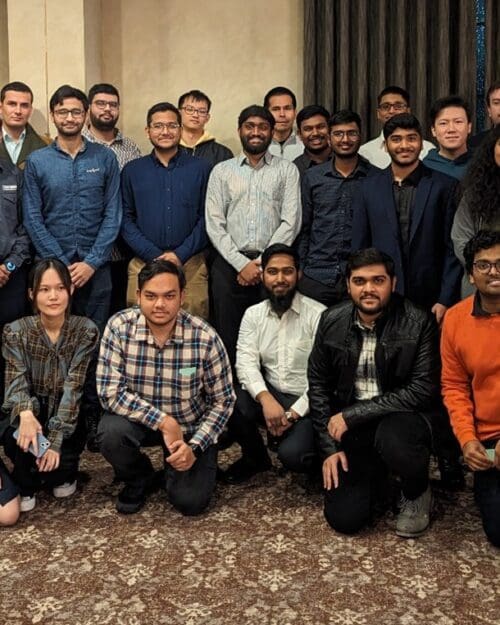
On January 9th, 2024, CIVS staff members Tyamo Okosun, Associate Director for Research, and Nicholas Walla, Senior Research Engineer, along with Kevin Kondrat, Improvement Facilitator at Gerdau Monroe, jointly presented “Energy Efficiency and Hydrogen Utilization for Blast Furnace and Reheating Furnace” to over 250 attendees at the AIST Midwest Chapter Dinner held at the Avalon Manor in Merrillville.
AIST Midwest Chapter Chair Michael Schwentor opened the evening’s presentation by acknowledging the over 30 Purdue Northwest students representing various project teams at CIVS and encouraging them to apply to the AIST Midwest Member Chapter’s Scholarship Program.
The keynote presentation highlighted two recently awarded DOE-funded projects:
“Integrated Virtual Blast Furnace for Real-time Energy Efficiency Improvement,” presented by Tyamo Okosun, is supported by a $7 million grant from the U.S. Department of Energy’s (DOE’s) Office of Energy Efficiency and Renewable Energy (EERE) and has made significant progress since its launch in September 2021. CIVS successfully completed the project’s first phase in March 2023 and entered phase two. The presentation emphasized the efficiency and effectiveness of integrating digital technologies and helped introduce the next project, which will adopt a similar process and application roadmap.
The IVBF is a project building upon all of the work CIVS has done to develop a tool which will guide operators and engineers towards more stable and efficient states for their furnaces and enable the industry to reduce fuel consumption and emissions.
“Development and Demonstration of an Industrial Hydrogen-fired Steel Reheating Furnace (H2RF),” presented by Nicholas Walla, is supported by a $10 million grant from the U.S. Department of Energy (DOE)’s Industrial Efficiency and Decarbonization Office (IEDO) and was officially announced at a formal ceremony in October 2023. An essential aspect of this project was the H2 fuel research conducted at CIVS since 2018, which led to various phases of development that will expand into 2025.
The H2RF presentation included an introduction of the Gerdau Special Steel Monroe mill by Improvement Facilitator Kevin Kondrat, which will serve as the industrial site demonstration for the project. He highlighted the mill’s economic footprint, automotive applications, and production capabilities.
The H2RF project is an exciting opportunity that allows CIVS to leverage its long history in steel research while working with some amazing collaborators from industry, research, and academia. Not only are we going to explore cutting-edge decarbonization methods for steel production, we get to see the results applied in a first-of-its-kind commercial demonstration.
Presenters took a moment to recognize the project’s Principal Investigator (PI), CIVS Director, Chenn Zhou, and the following CoPIs:
- Armin Silaen- Associate Director for Operations, CIVS
- Tyamo Okosun- Associate Director for Research, CIVS
- Joao Gonzaga- Sr. Director of Engineering, Gerdau
- Kevin Kondrat- Improvement Facilitator of Rolling Mill, Gerdau
- Joe Maiolo- Associate Director of Research and Development for Metals Applications, Linde
The presentation included outcomes of other collaborative projects and highlighted the benefits of digital technology integration in several industry processes for energy efficiency and decarbonization. An insightful Q&A about both projects was held following the presentation.
Exploring hydrogen in steel production through advanced simulations opens new doors for environmental advancements. Hydrogen’s potential in transforming steel manufacturing is clear through the data presented by CIVS research. The center’s innovative approach to data visualization brings new perspectives on hydrogen in steelmaking.
The Association for Iron & Steel Technology (AIST) is a non-profit organization with 15,500 members from over 70 countries. With 30 Technology Committees and 22 Local Members Chapters, AIST represents an incomparable steel industry knowledge and expertise network. Their mission is to advance the technical development, production, processing, and application of iron and steel.
The Midwest Member Chapter is the largest AIST member chapter, with over 1,600 members. It includes North Dakota, South Dakota, Minnesota, Iowa, Nebraska, Wisconsin, Northern Indiana, and a small portion of Northwestern Illinois.
